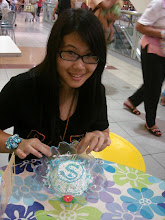
According to Filipino Psychology,
Core value or Kapwa
Kapwa, meaning 'togetherness', is the core construct of Filipino Psychology. Kapwa has two categories, Ibang Tao (other people) and Hindi Ibang Tao (not other people).
Along with this psychology are:
Pakikitungo: civility
Pakikisalamuha: act of mixing
Pakikilahok: act of joining
Pakikibagay: conformity
Pakikisama: being united with the group.
Hindi Ibang Tao ("one-of-us")Taong Bahay: There are three domains in this construct:
Pakikipagpalagayang-loob: act of mutual trust
Pakikisangkot: act of joining others
Pakikipagkaisa: being one with others
Pakiramdam: Shared inner perceptions. Filipinos use damdam, or the inner perception of others' emotions, as a basic tool to guide his dealings with other people.
Kagandahang-Loob: Shared humanity. This refers to being able to help other people in dire need due to a perception of being together as a part of one Filipino humanity.
After the Ondoy flooding, everybody was affected, the rich and the poor, the youth and the old, etc. Though each has a problem of their own, every Filipino family didn’t forget to give a helping hand to their fellows. Everyone showed concern and willingness to help to those who are in need. The Philippines rose together after the disaster with “utang na loob.”

No comments:
Post a Comment